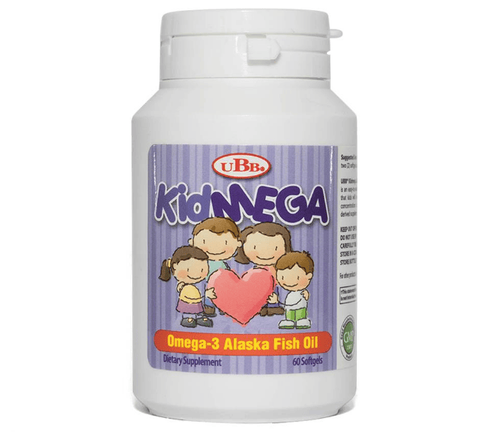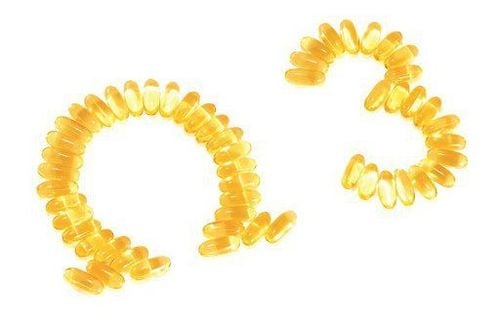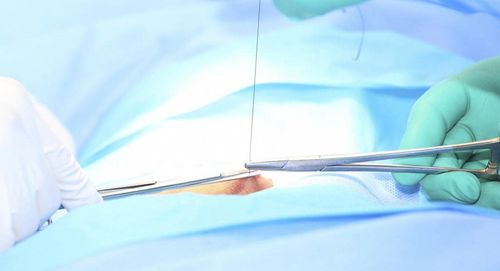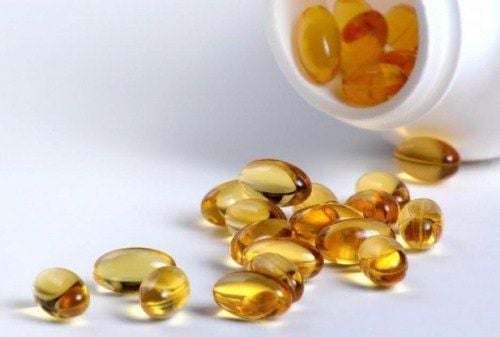This is an automatically translated article.
DHA is one of the most important nutrients for the health of mother and baby during pregnancy. DHA helps promote brain development, motor abilities as well as eyesight in children in the first years of life. In addition, DHA supplementation during pregnancy also limits the risk of premature birth in the mother.1. What is DHA?
DHA (also known as docosahexaenoic acid) is an omega-3 polyunsaturated fatty acid, which accounts for a large proportion in the brain's gray matter, and accounts for 60% of the nutrient content in the retina.For adults, DHA has a role in preventing cardiovascular diseases, depression, diabetes, neurodegeneration (Alzheimer's).
For infants and young children, DHA is an extremely important nutrient in the process of visual development, enhancing intellectual development and psychological formation.
2. The importance of DHA for pregnant women and their unborn babies
DHA is an indispensable ingredient for pregnant women and fetuses during pregnancy. The lack of DHA in the body during pregnancy leads to the risk of preterm birth, the occurrence of pre-eclampsia, in addition to an increased likelihood of postpartum depression, problems with menopause, disease cardiovascular disease, osteoporosis.
For the fetus and newborn, not getting enough DHA needed during pregnancy can significantly affect the development of the immune system, increase the risk of allergic diseases and asthma. ; In addition, it also affects the development of the brain, reduces the level of intelligence, slows down in development compared to children with adequate DHA.
3. DHA needs during pregnancy
According to the World Health Organization (WHO), during pregnancy, depending on the stage, pregnant women need to supplement on average about 100-200 mg of DHA per day.In the first 3 months of pregnancy: Besides important nutrients such as iron, protein, calcium, DHA is also an essential nutrient to supplement during this period. Milk, dark green vegetables, lean meat, bread, cereals, fish are some foods rich in DHA that pregnant women can supplement in the first 3 months of pregnancy. Adequate nutrition during this period will help reduce the risk of preterm birth, prenatal complications, and also have a positive effect on the formation and development of the fetus.
In the second trimester of pregnancy: This period needs a large amount of DHA because the baby's brain cells are in the process of strong development with an average of about 250,000 neurons being formed every minute. DHA at this time has the effect of providing fluidity to cell membranes, increasing the ability to transport information between nerve cells. Therefore, pregnant women should note that each day's meal needs to be full of 1 part protein, 3 parts fat and 6 parts sugar to ensure the full amount of DHA needed for the body.
In the last 3 months of pregnancy: At this time, the brain and size of the fetus develop rapidly, so a large amount of fatty acids is needed in the development of the nervous system and blood vessels. Although there is no need to increase the diet as in the mid-pregnancy period, pregnant women still need to pay attention to implement a reasonable diet, can take DHA supplements in combination with proper rest and relaxation. This is also a prerequisite stage for pregnant mothers to reduce the possibility of premature birth, antenatal complications as well as bring the best development to the child in the early stages of life.
4. How to supplement DHA for pregnant women during pregnancy
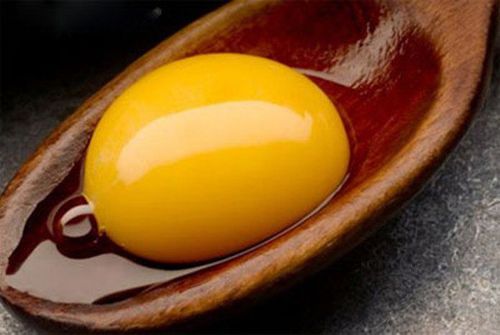
Trong lòng đỏ trứng gà có chứa hàm lượng lớn DHA và choline tốt cho sự phát triển của thai nhi
Due to the structure of DHA belongs to the group of omega-3 fatty acids with EPA and ALA, so the mother's body cannot synthesize it, but it is provided through DHA-containing foods or using DHA supplements.
Some foods rich in DHA
Sea fish: Some types of sea fish such as salmon, mackerel, tuna, sardines... contain a lot of DHA for brain development in children, but mothers Pregnant women should only eat sea fish in a reasonable amount (about 300 grams per week), if used too much, it can cause mercury poisoning, which is extremely dangerous during pregnancy. Egg Yolk: Egg yolk contains a large amount of DHA and choline, which is good for the development of the fetus. Pay attention to only eat cooked eggs, not hard-boiled eggs, beaten eggs.
Nuts: Pregnant women can drink milk from nuts or use them as snacks to supplement the necessary DHA for the body.
Green vegetables: Cauliflower, cabbage, pumpkin, kale, watercress are some foods that help pregnant women supplement DHA and fiber daily. Pay attention to choosing clean vegetables and processing them properly to avoid affecting health.
Milk for pregnant women: The use of specially formulated milk for pregnant women helps supplement DHA needed during pregnancy.
DHA supplements
Currently, on the market there are quite a few types of DHA supplements for pregnant women with different concentrations. Therefore, it is recommended that pregnant women consult a specialist to supplement DHA with appropriate levels.
Above is some information about DHA needs during pregnancy. Hopefully, through this article, it helps pregnant women understand the importance of DHA supplementation during pregnancy, both helping the mother reduce the risk of premature birth and having postpartum diseases, and increasing the ability to develop. comprehensive and complete in children.
Please dial HOTLINE for more information or register for an appointment HERE. Download MyVinmec app to make appointments faster and to manage your bookings easily.




